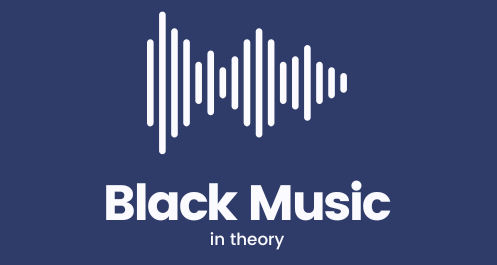Welcome to Black Music, in Theory, an online open-access peer-reviewed journal of University of Michigan journals. We are excited to bring you this new publication venue focusing on Black and African American music. With this journal our intent is to foreground Black voices while inviting all interested parties to the fold. Black Music, in Theory welcomes everyone!
With its numerous celebrated genres, Black music has arguably had a greater impact on the course of American music than any other music in the history of the United States. There is hardly a music out there that Black music has not touched in one way or another, including musics not often associated with Blackness such as bluegrass, concert/classical, country, metal, or punk. Black Music, in Theory is a journal dedicated to all Black musical genres, to how they’ve developed and intersected with other genres, and how they’ve impacted American music and American history.
Black Music, in Theory benefits from a rich heritage of prior scholarship by pioneering Black writers and thinkers going back at least to James Monroe Trotter’s Music and Some Highly Musical People from 1878, which featured more than forty African American musicians, groups, and composers. Much later, from Eileen Southern’s The Black Perspective in Music to Samuel Floyd’s Black Music Research Journal, among others, there has been a vibrant tradition of African Americans publishing scholarship on Black music. However, for nearly a decade, since Black Music Research Journal shuttered operations in 2016, there has been something of a void for Black-led scholarship on Black and African American music in journal publications. We are excited to fill this void and proud to honor these vibrant traditions with Black Music, in Theory.
Black Music, in Theory centers the analysis, composition, criticism, history, interpretation, performance, and theory of Black music while highlighting previous work done on Black musicians and composers. In addition to providing this important new publication venue, we wish to problematize how mainstream academic music journals have treated Black music in the past. Too often, in order to see work on Black music in these journals, one needed to strip the music in question of its Blackness, its humanity, and its history to present it on the main stage of American music academies. Black Music, in Theory, however, presents this music in full view of its history and its Blackness while offering compelling new interpretations for the twenty-first century.
For this inaugural curated issue of the journal we invited five eminent scholars to weigh in on the issues. Horace Maxile and Tammy Kernodle, in their respective articles, “An Interlude, Before the Next Movement” and “Walk Together Children, Don’t You Get Weary: Black Music Journals and the Legacy of Black Intellectual Activism,” unpack some of the histories and the legacy publications that focused on Black music while envisioning a course for the future. Dwight Andrews’s and Fredara Hadley’s pieces, “Theorizing Theory, Theorizing Blackness” and “I’m Buildin’ Me a Home: Hearing Ritual and Performance at Historically Black Colleges and Universities,” represent article versions of keynote addresses that they delivered at two different Theorizing African American Music conferences, Andrews at Case Western Reserve University on June 17, 2022, and Hadley at the University of Colorado–Denver on November 8, 2023. Finally, music theorist Jewel Thompson, who passed away on June 27, 2025, was interviewed by Philip Ewell. We dedicate this inaugural issue of Black Music, in Theory to Thompson’s memory.
We encourage all interested parties to submit work to our journal, and we hope you enjoy this inaugural issue. Once again, welcome to Black Music, in Theory!
Naomi André
Philip Ewell
Fredara Hadley
Christopher Jenkins
Teresa Reed

